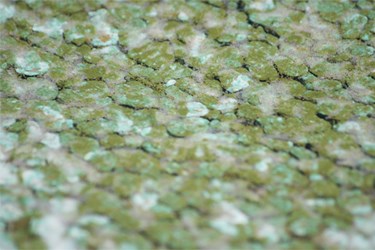Toxic Algae's Newest Hot Spot

It's not just Toledo struggling with blue-green algae.
Most recently, toxic blooms appear to be growing on the Cape Fear River in North Carolina despite the fact that the area showed no signs of algae last year.
"Authorities say that potentially toxic blue-green algae that forced officials in Toledo, Ohio, to shut down that city's water system have been found in the Cape Fear River. But officials with area water utilities say there is no immediate cause for concern," WRAL reported.
Carbon filters will help keep the situation in check, according to Mike McGill, a spokesman for the Cape Fear Public Utility Authority (CFPUA).
“Because of CFPUA's advanced treatment, which includes the use of ozone and biologically active carbon filters, the algae is destroyed and removed. As a result, we have not experienced any water quality-related issues related to algae blooms,” he told the Star News Online. “We will continue to monitor the situation.”
The area did not experience toxic algae blooms last summer, according to University of North Carolina Professor Larry Cahoon.
"There have been blooms of the toxic algae in the summers of 2009-2012, none last summer, and now this bloom. Cahoon said it is possible for blooms not to produce toxins but they usually do under certain conditions," WECT reported. "While this bloom is still being tested, due to the fact that it is in a similar spot and under similar conditions as blooms in previous years, he says it highly likely the bloom secretes toxins."
Local environmentalists are eyeing farmers as the possible cause of new algae blooms.
"Kemp Burdette the Cape Fear Riverkeeper says runoff from animal farms give cape fear the nutrients it needs for algae to grow," WWAY reported.
Image credit: "Blue Green Algae 04," Mark Sadowski © 2007, used under an Attribution-ShareAlike 2.0 Generic license: https://creativecommons.org/licenses/by-sa/2.0/
Copyright © 1996-2014 VertMarkets, Inc. All Rights Reserved.
http://www.wateronline.com/doc/toxic-algae-s-newest-hot-spot-0001